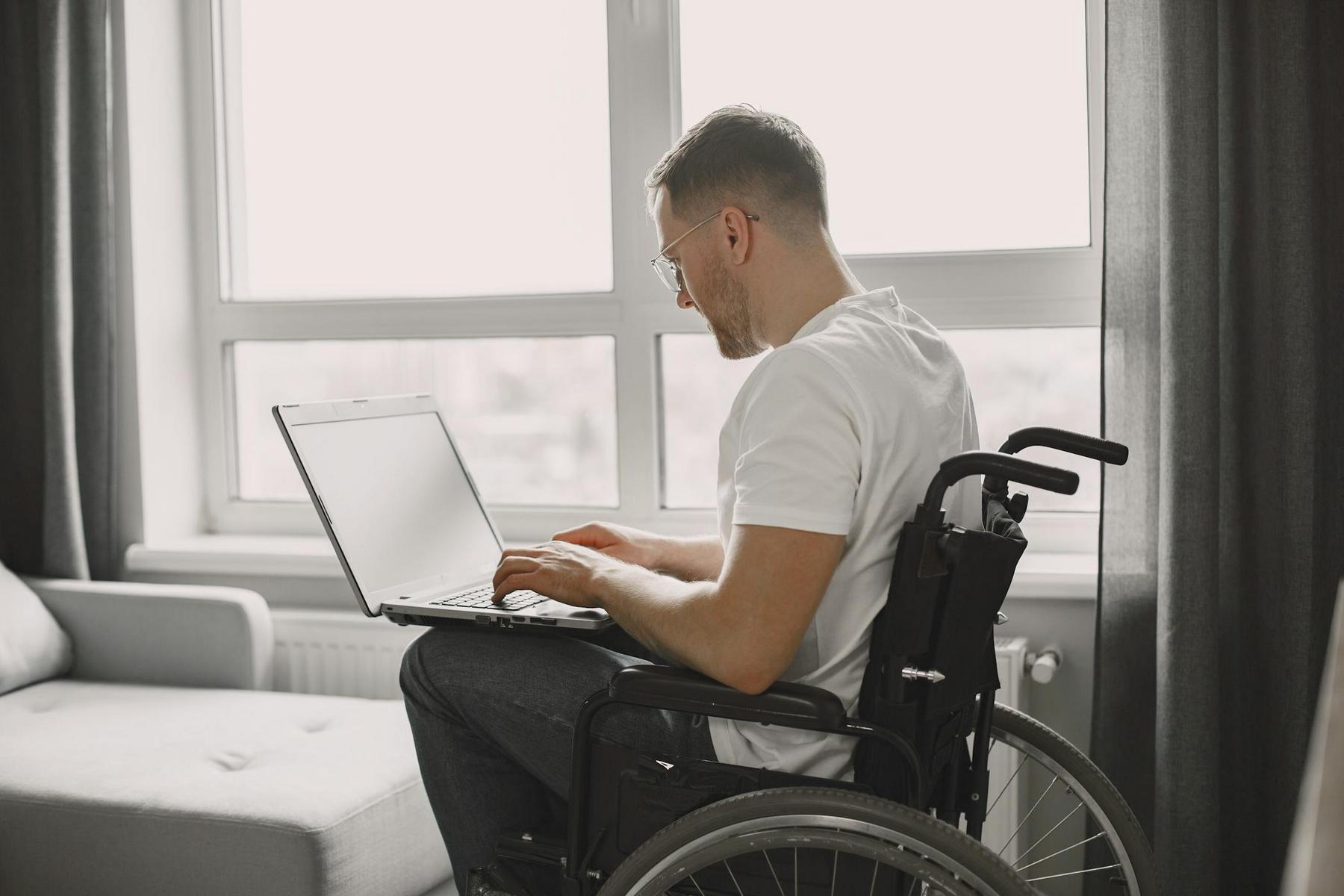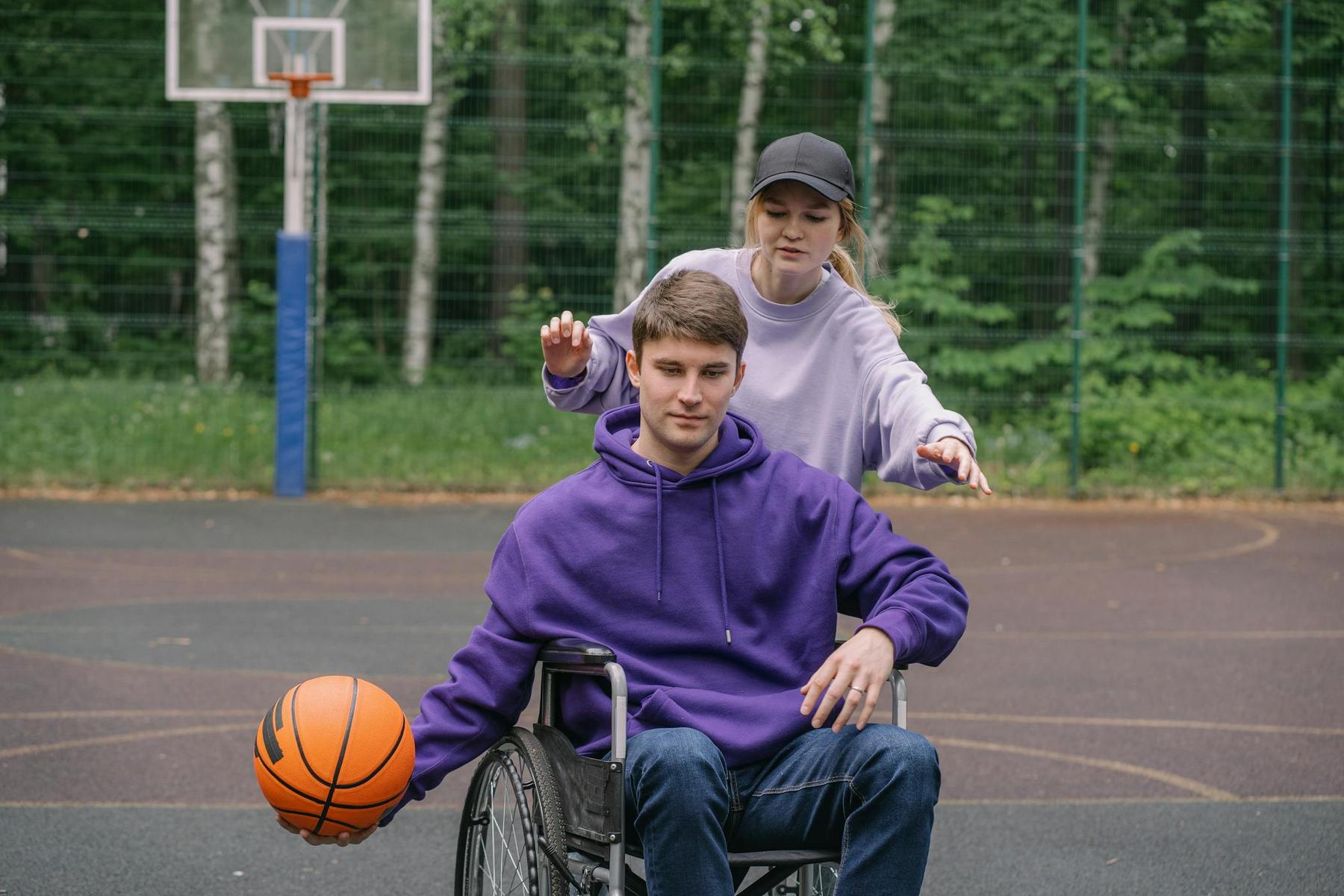The right piece of equipment can transform a life. A communication device that finally gives voice to unspoken thoughts. A wheelchair that opens up opportunities for employment and social connection. A simple adaptive utensil that restores the dignity of independent eating. For the 649,623 NDIS participants across Australia—and the thousands living in Brisbane and surrounding Queensland regions—assistive technology represents far more than just equipment. It represents freedom, independence, and the ability to live life on one’s own terms.
Yet navigating the NDIS funding landscape for assistive technology can feel overwhelming. With recent reforms, changing eligibility criteria, and complex approval processes, many participants and their families find themselves asking: “How do I access the equipment I need?” This comprehensive guide demystifies the process, providing Brisbane-based NDIS participants with the knowledge needed to access appropriate assistive technology through qualified suppliers.
What Is Assistive Technology and How Does NDIS Funding Work?
Assistive technology encompasses any equipment, device, or system that helps individuals with disabilities perform tasks they would otherwise be unable to do—or cannot do as safely, easily, or independently. The World Health Organisation defines it as “any device or system that allows individuals to perform tasks they would otherwise be unable to do or increases the ease and safety with which tasks can be performed.”
The scope is remarkably broad. From simple reacher tools and non-slip bath mats to sophisticated communication devices and custom-made powered wheelchairs, assistive technology spans every aspect of daily living. Approximately 80% of NDIS participants have funding for assistive technology in their plans, highlighting its critical role in participant independence and goal achievement.
Understanding the Three Funding Tiers
Assistive technology suppliers in Brisbane work within a structured three-tier funding framework based on cost and complexity:
Level 1: Low-Cost Items (Under $1,500) are funded through your Core Support – Consumables budget. These require no specific evidence or prior approval, though they must still meet “reasonable and necessary” criteria. Think walking sticks, adapted cutlery, shower chairs, and basic mobility aids.
Level 2: Mid-Cost Items ($1,500 to $15,000) require written evidence from qualified allied health professionals such as occupational therapists or physiotherapists. The NDIS aims to approve these within 28 days when appropriate evidence is provided. This category includes manual wheelchairs, standing hoists, hearing aids, and alternative communication devices.
Level 3: High-Cost Items (Over $15,000) demand detailed assessments from qualified assessors plus formal quotes from registered providers. Complex powered wheelchairs, ventilators, advanced communication systems, and specialized prosthetics fall into this category, with NDIS approval timelines extending to 50 days.
How Much NDIS Funding Is Available for Assistive Technology in Queensland?
Queensland has been allocated $12.15 billion in NDIS funding for 2025, reflecting the significant commitment to disability support across the state. This substantial investment emphasizes accessibility in regional and remote areas, ensuring Brisbane, Cairns, and surrounding communities receive equitable disability support.
The numbers tell a compelling story about assistive technology’s importance within the NDIS ecosystem. In the first nine months of 2024 alone, NDIS participants received $589 million in funding for assistive technology capital items, plus repair and maintenance costs. Additionally, participants utilised $693 million in funding for low-cost assistive technology and consumables such as continence supports.
| Funding Category | Percentage of Participants | Average Annual Payment |
|---|---|---|
| Assistive Technology | 30.17% | $4,000 per participant |
| Consumables | 85.91% | $1,000 per participant |
| Core Support | Majority | $39.78 billion (total allocation) |
| Capacity Building | Significant portion | $13.48 billion (total allocation) |
| Capital Support (including AT) | Smaller percentage | $2.16 billion (total allocation) |
These figures demonstrate that whilst assistive technology represents a smaller proportion of total NDIS spending compared to support services, it remains absolutely vital for participant outcomes. Research consistently shows that for every $1.00 spent on assistive technology and home modifications, there is a conservative estimated two-fold return on investment through reduced need for paid carers, support services, and medical interventions.
What Types of Assistive Technology Can NDIS Participants Access in Brisbane?
Brisbane-based NDIS participants can access an extensive range of assistive technology through local suppliers, spanning virtually every aspect of daily living and participation.
Mobility and Independence Equipment
Personal mobility equipment forms a substantial category, including wheelchairs (manual and powered), mobility scooters, walking frames, crutches, and specialized seating systems. Brisbane suppliers provide not only the equipment but also essential services such as customization, fitting, maintenance, and repairs.
Communication and Sensory Support
Communication devices represent life-changing technology for many participants. Alternative and Augmentative Communication (AAC) systems, speech-generating devices, hearing equipment, and vision aids enable participation in education, employment, and social activities. However, it’s crucial to note that as of October 2024, tablets and devices for AAC are classified as replacement supports requiring NDIS approval prior to purchase—a significant change from previous guidelines.
Daily Living and Self-Care Support
Assistive products for food preparation, house cleaning, gardening, laundry, and personal hygiene help participants maintain independence in their own homes. This includes modified cutlery, adapted kitchen equipment, shower chairs, continence products, and specialized clothing. Brisbane suppliers offer assessment services to ensure equipment meets individual needs and home environments.
Home and Vehicle Modifications
For participants requiring environmental adaptations, the NDIS supports home modification design and construction, plus vehicle modifications. These might include ramps, widened doorways, accessible bathrooms, and vehicle lifts or controls.
Recreation and Community Participation
Assistive products used in sports or recreational activities ensure participants can engage fully in community life. From adaptive sporting equipment to specialized recreational aids, Brisbane’s assistive technology suppliers recognize that participation extends beyond basic daily activities.
What the NDIS Won’t Fund
Understanding exclusions is equally important. The NDIS does not cover assistive technology that constitutes treatment or rehabilitation (typically covered by health services), standard computers and accessories, internet connections, streaming service subscriptions, or mainstream technology that doesn’t overcome a functional limitation. Items that should be funded by other services—such as Medicare or education systems—also fall outside NDIS coverage.
How Do You Apply for Assistive Technology Funding Through the NDIS?
The application process varies significantly depending on the cost and complexity of the required equipment, but understanding the pathway can substantially reduce stress and delays.
For Low-Cost Assistive Technology (Under $1,500)
The process is refreshingly straightforward. No formal assessment is required, and you don’t need specific approval from the NDIS before purchase. Simply ensure you have sufficient funds in your Capacity Building or Core Consumables budget, purchase from any retailer (not necessarily NDIS-registered), and keep receipts for claims or audits. At minimum, $500 in your Capacity Building budget should be available if seeking professional advice about equipment selection.
For Mid-Cost Assistive Technology ($1,500-$15,000)
This tier requires more documentation but remains manageable with proper support:
- Obtain a professional assessment from an occupational therapist, physiotherapist, or qualified allied health professional. This assessment should clearly demonstrate how the assistive technology supports your NDIS goals and meets “reasonable and necessary” criteria.
- Gather quotes from NDIS-registered assistive technology suppliers in Brisbane. Multiple quotes help demonstrate value for money.
- Submit documentation through your support coordinator or plan manager, who can help compile the necessary evidence and ensure all requirements are met.
- Await approval, typically within 28 days for mid-cost items when appropriate evidence is provided.
For High-Cost Assistive Technology (Over $15,000)
High-cost items demand more rigorous processes:
- Detailed assessment from a qualified assistive technology assessor who specializes in the specific equipment type.
- Trial period may be necessary to demonstrate the equipment’s effectiveness for your particular circumstances.
- Formal quote from a registered provider, often including service agreements.
- Plan specification: The item must be specifically stated in your NDIS plan, including the model or type.
- Approval timeline extends to 50 days, requiring patience and proactive follow-up.
The “Reasonable and Necessary” Framework
Every assistive technology request must satisfy the “reasonable and necessary” criteria. This means the support must address needs arising from your disability, assist in achieving your goals, facilitate social and economic participation, represent value for money, be effective and beneficial, account for what families and informal networks can reasonably provide, and be listed as an NDIS support or approved replacement support.
Which Assistive Technology Suppliers Should Brisbane Participants Consider?
Brisbane and the broader Queensland region host numerous NDIS-registered assistive technology suppliers offering specialized services across all equipment categories. When selecting suppliers, several critical factors deserve consideration.
Registration and Compliance
Ensure your chosen supplier maintains current NDIS registration with the NDIS Quality and Safeguards Commission. Registered providers must meet quality standards, maintain appropriate insurance, and comply with regulatory requirements that protect participants.
Specialization and Expertise
Different suppliers specialize in different equipment types. Mobility equipment suppliers excel in wheelchairs, scooters, and walking aids. Communication device specialists focus on AAC systems and speech-generating devices. Home modification providers handle environmental adaptations. Selecting a supplier with deep expertise in your specific equipment needs typically results in better outcomes.
Assessment Services
Many Brisbane suppliers employ or partner with occupational therapists, physiotherapists, speech pathologists, and other allied health professionals who can conduct necessary assessments. This integrated approach streamlines the approval process and ensures equipment recommendations align with clinical best practice.
After-Sales Support
Assistive technology requires ongoing maintenance, repairs, adjustments, and sometimes training. Suppliers offering comprehensive after-sales support—including maintenance programmes, repair services, equipment adjustments, and user training—provide greater long-term value than those focused solely on initial sales.
Local Presence and Accessibility
For Brisbane and Cairns-based participants, working with suppliers who have local presence offers distinct advantages. Face-to-face consultations, equipment trials, fitting appointments, and urgent repairs become far more manageable when suppliers operate within your geographic region.
Collaboration with Support Coordinators
Quality assistive technology suppliers work collaboratively with support coordinators and plan managers, understanding that participants often need assistance navigating the NDIS system. Suppliers who communicate effectively with your support team and provide clear documentation facilitate smoother approval processes.
What Changes to NDIS Assistive Technology Funding Should You Know About in 2026?
The NDIS landscape continues evolving, with significant reforms implemented in October 2024 that directly impact assistive technology access in 2026 and beyond.
The Section 10 Supports Lists
On October 3, 2024, the NDIS introduced interim supports lists defining what can and cannot be funded. This represented a substantial shift from the previous more flexible system. Notably, tablets and smartphones now require replacement supports approval rather than automatic funding. Many items previously funded may no longer qualify under the stricter definitions.
These interim lists remain in place until permanent lists are negotiated with Commonwealth, State, and Territory governments—expected sometime later in 2025 or early 2026. Brisbane participants should stay informed about these changes through their support coordinators and assistive technology suppliers.
Claims Timeframe Restrictions
Claims must now be submitted within two years of service provision, effective October 3, 2024. A 12-month grace period applies for backdated claims until October 2, 2025, but after that date, any service provided more than two years prior cannot be claimed. This change emphasizes the importance of timely claims processing and good record-keeping.
Replacement Supports Process
In limited circumstances, the NDIS can now fund items not normally on the supports list through a “replacement supports” process. This applies when items replace funded NDIS support and provide equivalent or greater benefit at no extra cost. Standard household items like washing machines, smartwatches, tablets, smartphones, and accessibility apps may qualify—but require NDIS approval prior to purchase.
Assistive Technology Rental and Refurbishment Pilot
A pilot programme launched in January 2025 in South Australia and Tasmania allows participants to access refurbished and rented equipment through the AccessTech online platform. If successful, this programme may expand to Queensland, potentially offering Brisbane participants more affordable access to quality assistive technology whilst reducing waste.
Enhanced Evidence Requirements
The new NDIS Evidence Advisory Committee, established with $45.5 million over four years commencing July 1, 2025, will provide independent advice on what works for participants, including assistive technology. This committee’s recommendations may influence future funding decisions and approval criteria, emphasizing evidence-based practice.
Cost Containment Measures
Increased scrutiny on claims for fraud prevention, pricing reforms for improved transparency, and strengthened governance arrangements reflect the government’s efforts to ensure scheme sustainability. For participants, this means more thorough documentation requirements but potentially more predictable pricing and clearer guidelines.
Finding Your Path Forward: Assistive Technology Access in Brisbane
The journey to accessing appropriate assistive technology through the NDIS need not be overwhelming. Whilst the system contains complexity—particularly with recent reforms—thousands of Brisbane and Cairns participants successfully navigate the process each year with proper support and guidance.
Understanding the three-tier funding structure, gathering appropriate professional assessments, working with registered suppliers who offer comprehensive expertise, and maintaining clear communication with support coordinators creates a pathway to successful equipment access. The $12.15 billion allocated to Queensland for NDIS funding demonstrates the significant commitment to ensuring participants receive necessary supports.
For Brisbane-based participants, the local ecosystem of assistive technology suppliers, allied health professionals, and disability service providers offers robust support networks. Whether you’re seeking a simple adaptive aid or complex powered mobility equipment, registered suppliers throughout the region stand ready to assist with assessments, quotes, applications, and ongoing support.
The 2026 landscape brings both challenges and opportunities. Whilst reforms have tightened some criteria and processes, they’ve also introduced clearer guidelines, enhanced safeguards, and potentially innovative options like equipment rental and refurbishment. Staying informed, working collaboratively with your support team, and understanding your rights within the system positions you for successful outcomes.
Remember that assistive technology funding exists because of one fundamental truth: appropriate equipment enables independence, participation, and dignity. Every wheelchair, communication device, mobility aid, and adaptive tool represents an investment in your goals, aspirations, and rightful place in the community.
How long does it take to receive NDIS approval for assistive technology in Brisbane?
Approval timelines vary by equipment cost. Low-cost items under $1,500 require no approval since you can purchase immediately if funds are available. Mid-cost items ($1,500-$15,000) typically receive approval within 28 days when appropriate evidence is provided. High-cost items over $15,000 generally receive decisions within 50 days. Working with experienced Brisbane assistive technology suppliers and support coordinators can help expedite the process by ensuring documentation is complete and meets NDIS requirements.
Can I purchase assistive technology from non-NDIS registered suppliers?
For low-cost items under $1,500, you can purchase from any retailer since no NDIS approval is required. However, for mid-cost and high-cost items requiring NDIS funding approval, you must generally purchase from NDIS-registered providers. Registered providers meet quality standards, maintain appropriate insurance, and comply with regulatory requirements that protect participants. Some exceptions may apply under the replacement supports process, but these require prior NDIS approval.
What happens if my assistive technology breaks or needs repairs?
Repair and maintenance costs for equipment over $1,500 can be funded through your Capital – Assistive Technology budget. However, repairs covered by supplier or manufacturer warranties must be claimed directly with them, not through the NDIS. Minor repairs under $1,500 outside warranty periods are generally claimed as low-cost assistive technology from your Core Consumables budget. For major repairs exceeding $1,500, funding is typically provided through ‘Repairs and Maintenance’ support items in your plan. Many Brisbane suppliers also offer maintenance programmes to keep equipment in optimal condition.
How do recent NDIS reforms affect tablet and smartphone funding for communication purposes?
As of October 2024, tablets and devices for Alternative and Augmentative Communication (AAC) are classified as replacement supports requiring NDIS approval prior to purchase. Previously, some tablets could be purchased under low-cost assistive technology categories, but the introduction of Section 10 supports lists has changed this. If you need a tablet or smartphone for disability-related communication, work with your allied health professional and support coordinator to submit a replacement supports application that demonstrates how the device replaces or supplements funded NDIS support at equivalent or better value.
Do I need an occupational therapist assessment for all assistive technology requests?
Not for all equipment, but for most mid-cost and high-cost items, yes. Low-cost items under $1,500 typically do not require a professional assessment, though seeking advice can help ensure you select the most appropriate equipment. Mid-cost items ($1,500-$15,000) generally require written evidence from a qualified allied health professional, such as an occupational therapist or physiotherapist. High-cost items demand detailed assessments from professionals with specific expertise in that equipment category.



